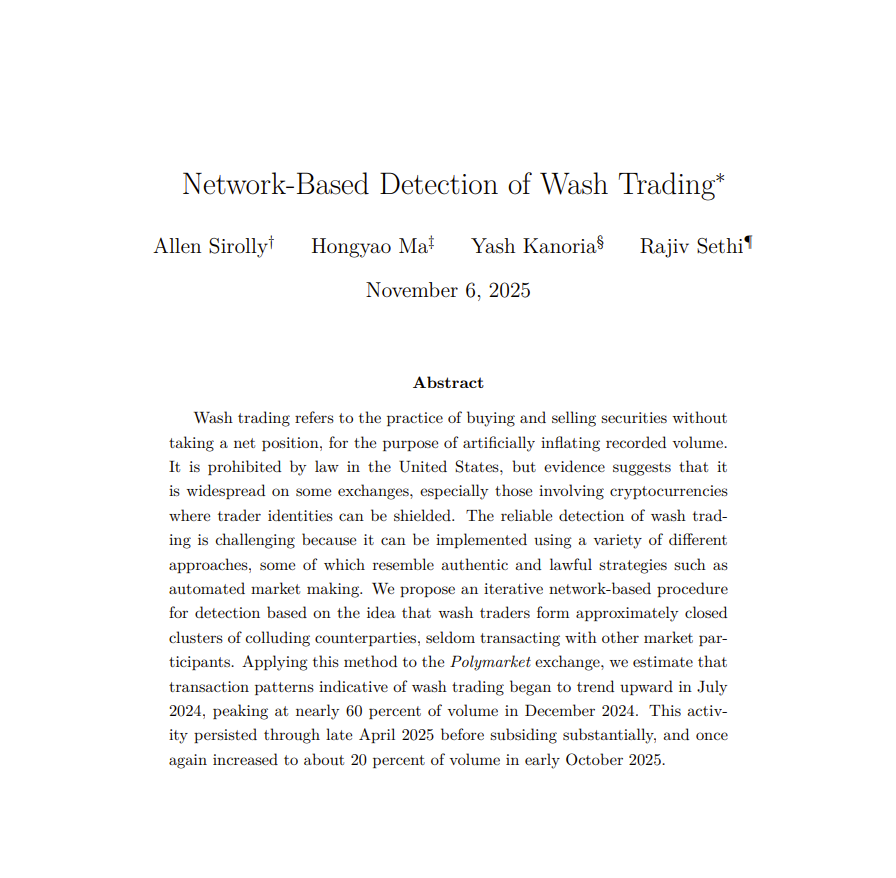
Prediction Market’s Reputation Under Fire
Polymarket, a prominent decentralized prediction market, is facing intense scrutiny following the release of a research paper by Columbia University academics. The study, titled “Network-Based Detection of Wash-Trading,” alleges the platform has been plagued by significant wash-trading activity, potentially distorting its trading volumes and raising questions about its overall market integrity.

The Wash Trading Findings
The Columbia researchers painstakingly analyzed Polymarket‘s trading data and uncovered compelling evidence of artificial trading practices. The analysis suggests that wash trades – where a trader simultaneously buys and sells an asset to create a misleading impression of market activity – have been prevalent on the platform, particularly during specific periods. According to the research, this activity peaked in July 2024, when it accounted for nearly 60% of total trading volume. While the activity subsided for a period, it reportedly resurfaced, reaching approximately 20% of trading volume in October 2025. The researchers estimate that a quarter of Polymarket’s total trading volume over the last three years can be attributed to artificial trades.
Implications for Polymarket and the Broader Market
Wash trading, a practice explicitly outlawed in the United States, poses significant risks to market integrity. This activity can mislead investors, artificially inflate prices, and misrepresent the actual demand and liquidity of a market. If the findings of the Columbia study are accurate, it raises serious concerns about Polymarket’s reported valuation and its ability to attract and retain legitimate traders. The allegations also cast a pall over the rapidly growing prediction market sector, which has gained increasing prominence for its ability to predict real-world events.
A History of Similar Concerns
The issues highlighted by the Columbia University research are sadly not isolated to Polymarket. The report also highlights a wider pattern of wash trading within the cryptocurrency space. Other platforms, including decentralized exchanges (DEXs), have also faced scrutiny over similar practices. In 2023, Solidus Labs published a report indicating that approximately 70% of Ethereum-based DEX liquidity pools were engaged in wash trading over a three-year window.
Polymarket‘s Response and Future Outlook
As the accusations surface, the cryptocurrency community awaits a response from Polymarket. The platform’s reaction will be critical in shaping the narrative and building trust. The company’s planned re-entry into the US market in November, and its pursuit of a significant valuation, make the situation even more crucial. Professor Yash Kanoria, a co-author of the Columbia paper, expressed his hope that Polymarket will welcome the analysis in their report. The future of Polymarket, and the broader prediction market sector, hinges on transparency and the commitment to fair and legitimate trading practices. These concerns could potentially hurt their appeal with both institutional and retail investors. It remains to be seen how the platform addresses these critical findings.



